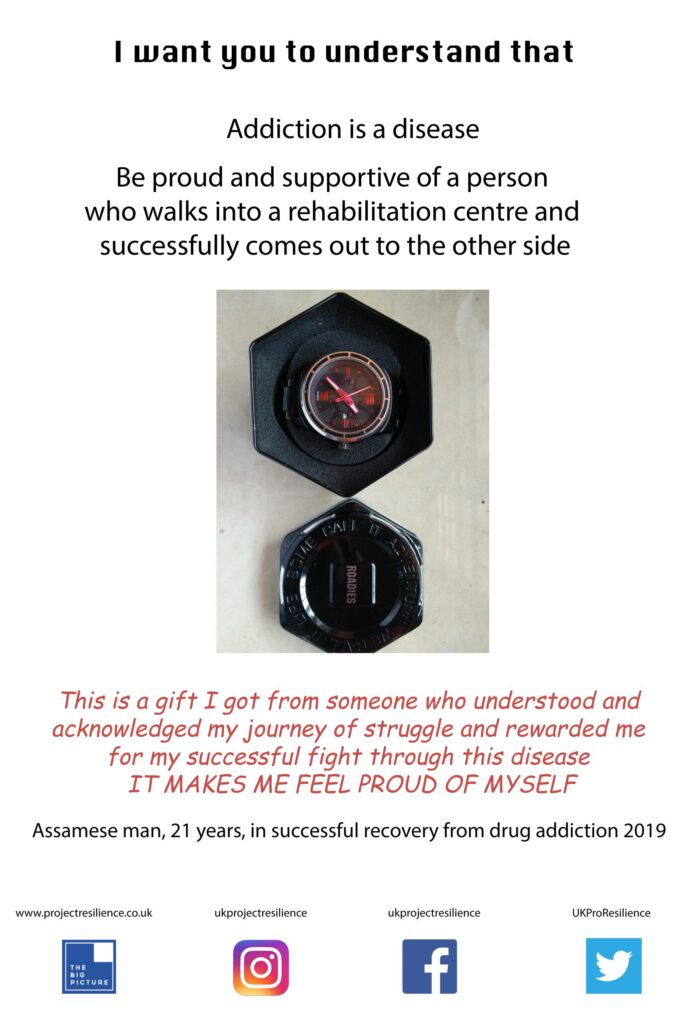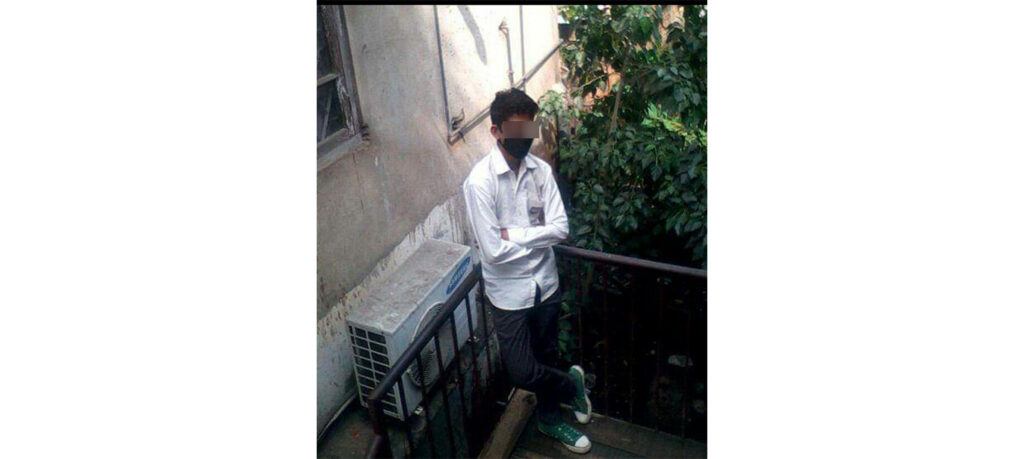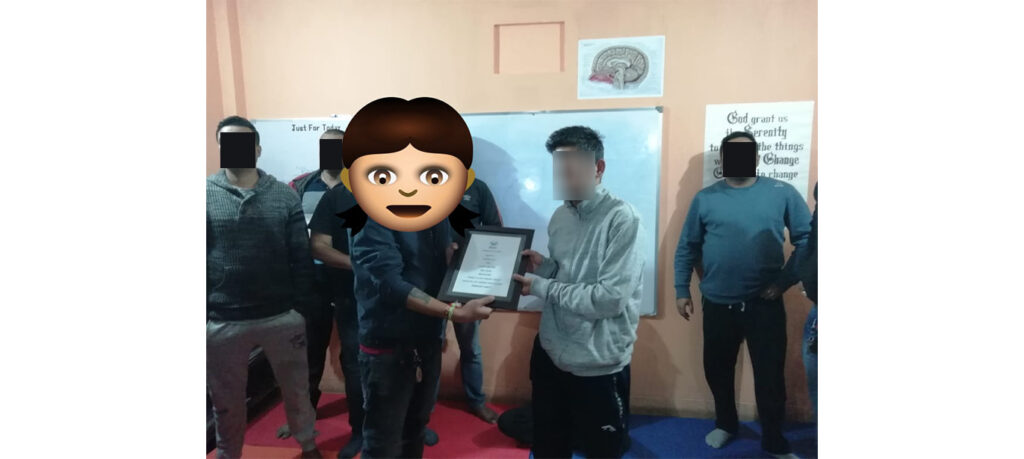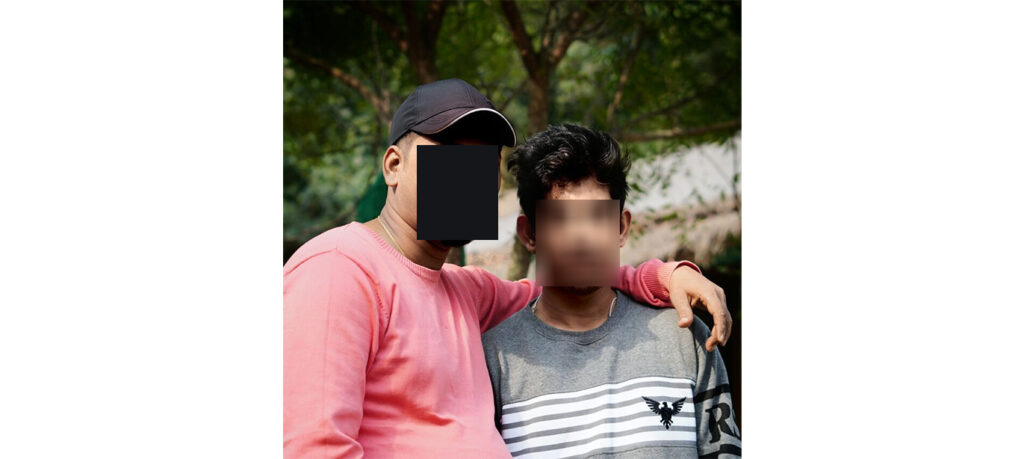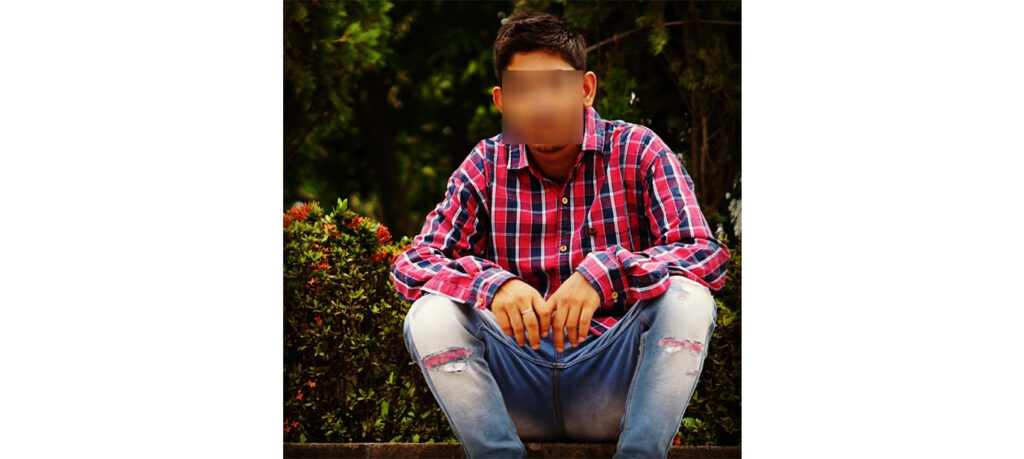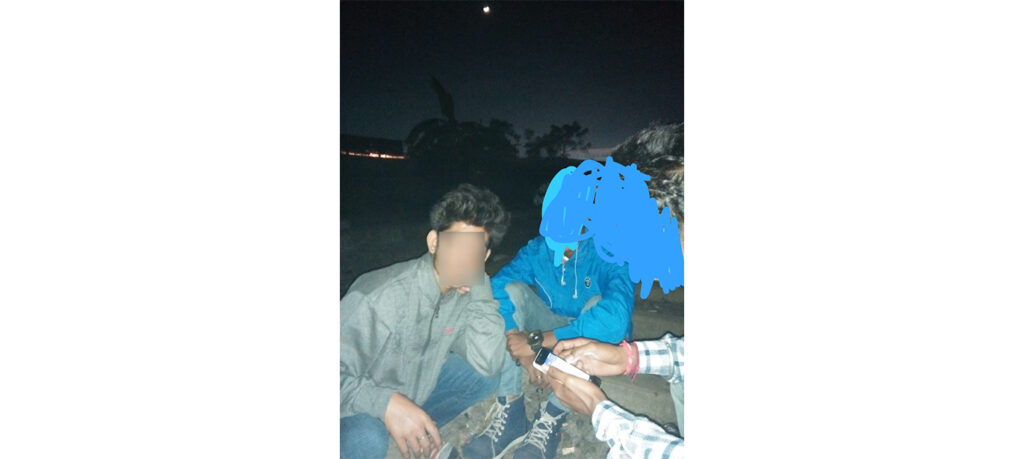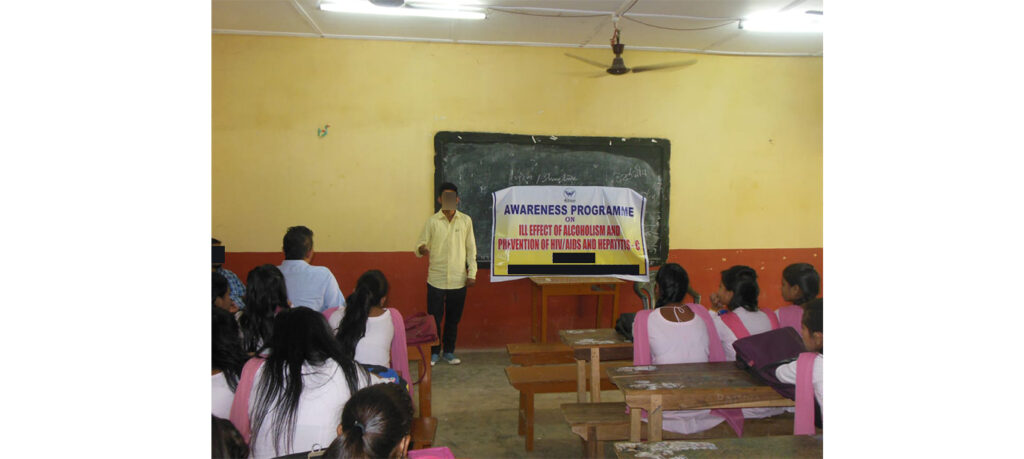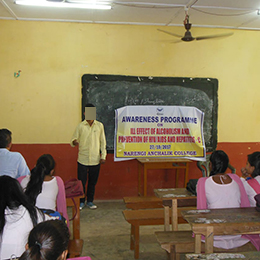Rishi provided us with feedback on the addiction to recovery model by testing if he could use it to trace his pathway. Rishi dropped deep into addiction and, at times, behaved destructively towards many people he cared for or met along the way. Here is Rishi’s journey to recovery.
For a description of our Pathways to Recovery Model click here
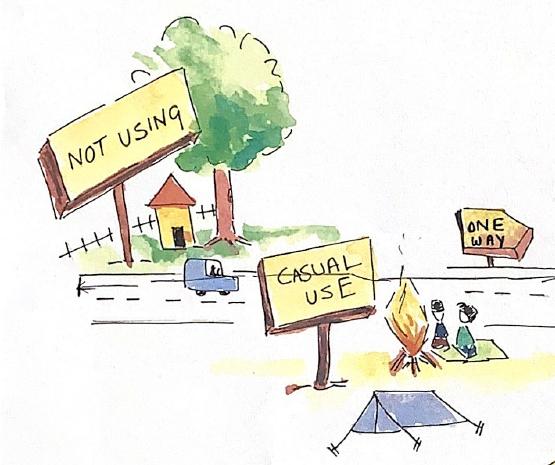
Phase 1. Recreational Use≫
Rishi first used alcohol at 14 years old when older boys in his neighbourhood offered him a drink: “‘We will have alcohol. Will you have?’ I thought let’s try how this feels.” Looking back, Rishi realised how interested he had always been about things that could potentially cause harm: “I’m curious about the negative things. If I look at it, I’m not too curious with good things. If some boy can study more, I’m not curious about how he does it.”
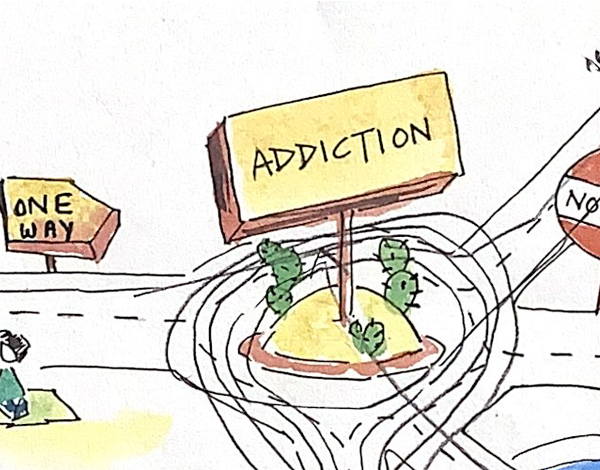
Phase 2a. Relaxed Addiction≫
Rishi had weed for the first time in a drink commonly taken at one of the Indian festivals: “…during Shiv Puja I had first guta.” He started neglecting college and went out with his friends trying different substances: “We always bunk classes and go there and have it. We go there and have bhang (weed). Do new- new experiments…” He found out his girlfriend was using heroin. At first he just watched, but then Rishi tried it. He “was tired. She said ‘Let’s take a bit.’ She pushed it in my arm. That was my first use.”
When his parents refused to give him money, Rishi created havoc at home: “I quarrelled. I would not allow my sister to study. She had her boards. I won’t let her study. Quarrel with her. Torture all people at home. Break things at home…” He also started to steal to buy drugs and when his parents “got to know that I steal money – so they started locking almirah (cupboard). They started keeping the keys hid from me…”
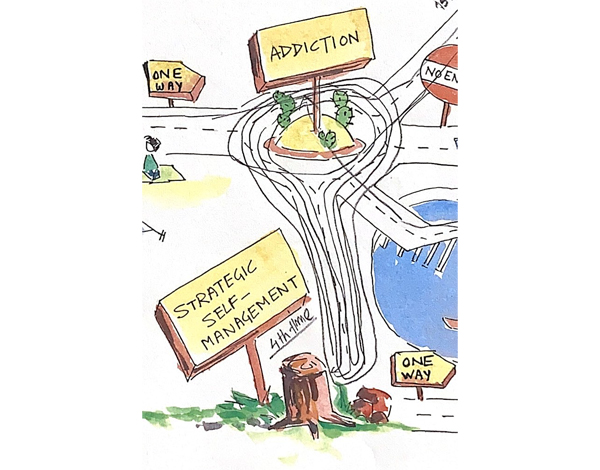
Phase 2c. Strategic Addiction≫
When his parents saw the effect of drugs on his behaviour, they took him to a psychiatrist and he was given Opioid Substitution Therapy (OST). However, Rishi explained how he used this to feed his addiction: “We boys at times ourselves go to hospitals and register our names to take OST. I went. I did not register my name. I directly buy. You get to buy tablets OST […] The day I don’t get money from home I take OST […] Family doesn’t get to know. My addiction is sustained also.”
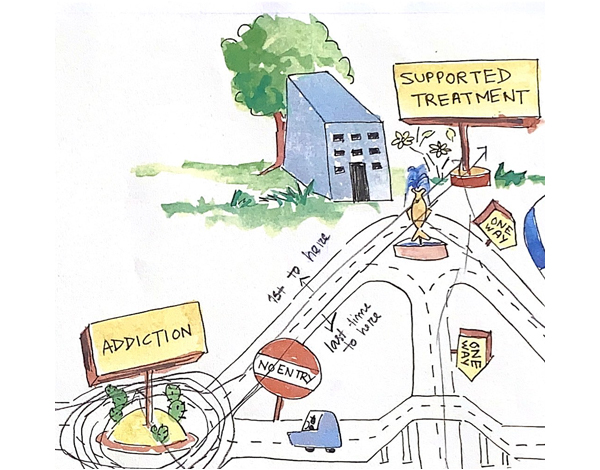
Phase 3: Supported Recovery≫
Eventually Rishi told his mother he wanted to go to the rehab centre. However, he intended to stay only a couple of days to manage withdrawal pain due to a temporary lack of supply. But the rehab staff were firm with him: “…they said ‘You are in rehab. You have to stay here two months.’ I came for two days. I will stay for two months! Who will keep me?’ I went and started yelling at the staff.” The rehab centre provided an extended programme of detoxification and support. So, Rishi found himself in Supported Recovery unintentionally and without his own motivation to quit.
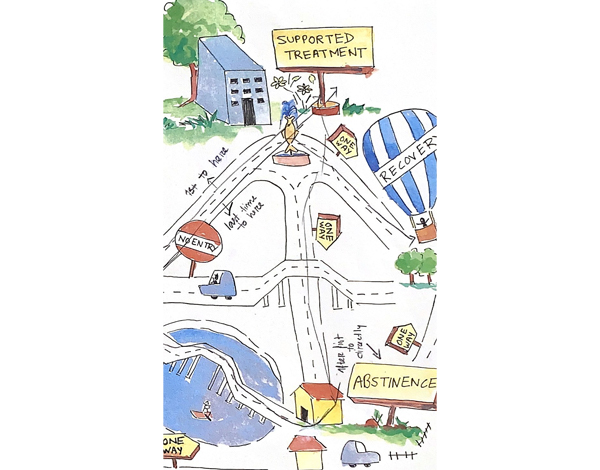
Phase 3: Supported Recovery (Abstinence)≫
When he got out of rehab, Rishi stayed off drugs for a while but did not change his attitude or behaviour. He said “I did not do anything. I just went to the centre. After coming back from the centre at home go out with friends. Same activity. In my life no change in the activity…” Rishi still had no real motivation to quit and, although abstinent from substance use, this made him vulnerable to relapse back into addiction.
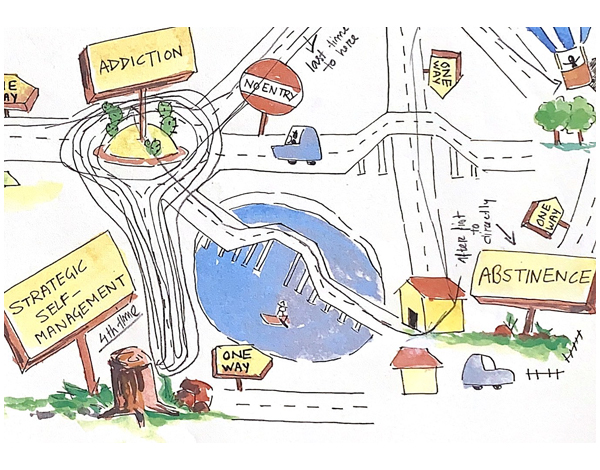
Phase 2b: Strategic Addiction (Relapse)≫
Rishi went to a new college where he met his ex-girlfriend and this triggered him to re-start drugs. There were times when he stopped for a few days, for example during exams, and he even stayed in rehab for ten days, but he still had no real intention to change his life. In fact, his substance use increased and he continued to be source of distress for his family. Finally, his family contacted a rehab centre and he was again “picked up” by staff.
Rishi continued to resent his family and showed no intention to change. Sure enough, the moment he got home after completing the programme, he was aggressive, started breaking things, and demanding to know why he was sent to rehab. Immediately “dad called them” and he was picked up again by rehab staff.
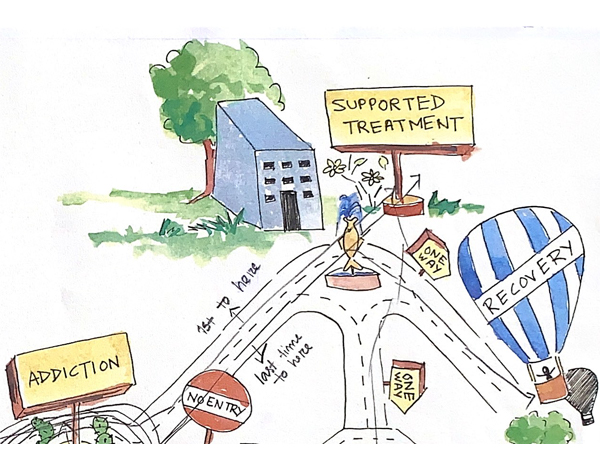
Phase 3. Supported Recovery (re-engagement)≫
This time, Rishi gradually started to change. He said “what came to my mind was that I’m powerless over the substances.” After completing the programme, he decided to stay longer, still unsure if he could control his addiction; “…I took a decision myself that I will not go home. Whenever I go home, my problems start.” He also wanted to thank the centre through volunteering, so actively helped other addicts and supported awareness programmes. All this was good for his own recovery as well: “that moment from which my self-confidence has grown so much.”
Rishi has not lost his curiosity. He just uses it now to support his recovery: “…today after I have come out- that I am maintaining this time. This is also a big thing, that I am curious to know that with recovery what all will happen after it. What good things will happen…” He has found meaning in life and support for his continued journey to recovery: “…narcotics anonymous or this whole addict community- we are role model based community. That everyone moves forward by looking at the role model. That we follow the footprints of the role model. I too do the same.”
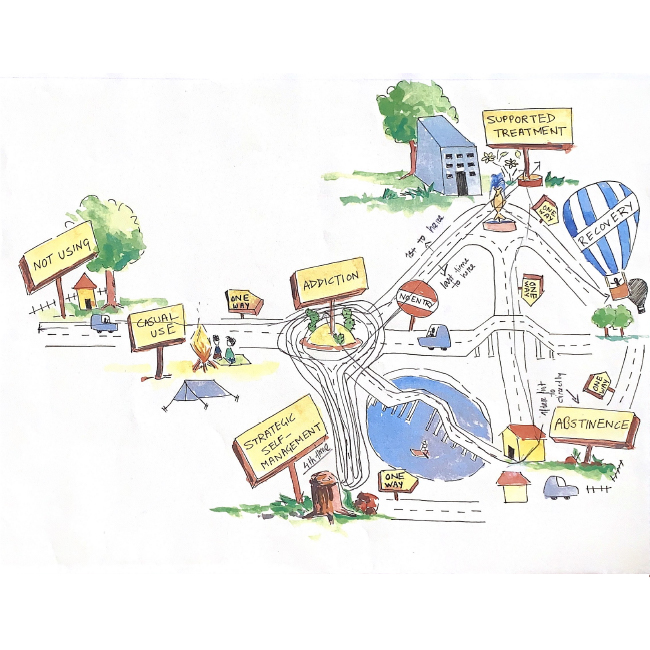
Rishi’s poster – This is Rishi’s message
